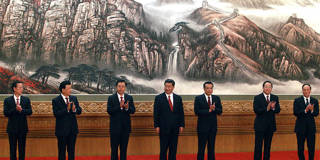China Confronts the Market
China’s current economic woes have largely been viewed through a single lens: the government’s failure to let the market operate. But that perspective has led foreign observers to misinterpret this year’s most important developments in the foreign-exchange and stock markets.
CAMBRIDGE – China’s current economic woes have largely been viewed through a single lens: the government’s failure to let the market operate. But that perspective has led foreign observers to misinterpret some of this year’s most important developments in the foreign-exchange and stock markets.



CAMBRIDGE – China’s current economic woes have largely been viewed through a single lens: the government’s failure to let the market operate. But that perspective has led foreign observers to misinterpret some of this year’s most important developments in the foreign-exchange and stock markets.